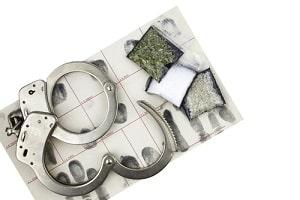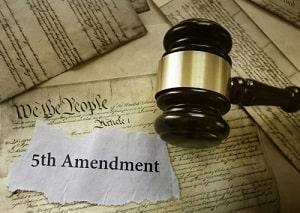Recent Blog Posts
What Are the Laws Regarding Statutory Rape in Texas?

The age of consent is 17 in Texas. This means that, according to Texas law, individuals under 17 years of age are incapable of consenting to sex or sexual contact with an adult. The crime commonly referred to as “statutory rape” falls under the law prohibiting the sexual assault of a child in Texas. If you have been accused of sexual assault against someone under age 17, you could face serious, life-altering criminal consequences. It is essential to consult with a criminal defense attorney experienced in handling cases involving crimes against children as soon as possible.
What if the Sex Was “Consensual?”
Most people know that forcing someone to have sex against his or her will is wrong both ethically and legally. However, you may not realize that you can be charged with sexual assault against a child even if you did not force the alleged victim to participate in the sexual act. Because the age of consent is 17 in Texas, it is against the law for an adult to have sex with someone aged 16 years or younger, even if the underaged person did not object to the sexual activity. This is true even if the defendant did not know that the alleged victim was under age 17.
What Should I Do if I Am Facing Federal Conspiracy Charges?

Most people are aware that acts such as fraud, drug trafficking, and certain weapons violations can be prosecuted by the federal government. However, you may not realize that a person can face federal charges even if he or she never actually committed a federal crime. Simply conspiring or planning to commit certain crimes with one or more other individuals can constitute a criminal act under federal law. Crimes prosecuted under federal law are often punished more severely than crimes prosecuted under state law. If you are being investigated for conspiring to commit federal crimes, it is imperative that you consult with a qualified criminal defense attorney immediately.
How Common Are Illegal Student-Teacher Relationships in Texas?

The Texas Education Agency investigated more than 400 cases of alleged illegal student-teacher relationships during the 2017-2018 fiscal year. Reports of inappropriate sexual and romantic relationships between students and teachers have risen dramatically in recent years in Texas. Many attribute this increase to the heightened awareness of illegal sex acts prompted by the #MeToo movement. Educators who are convicted of having an improper relationship with a student can lose their ability to teach, their reputation, and even their freedom. If you are a teacher or school employee who has been accused of having sexual relations with a student, speak with a criminal defense attorney as soon as possible.
When Does a Teacher-Student Relationship Cross the Line?
Teachers spend a great deal of time with their students. Some pupils may actually see their teachers more often than they do their own friends and family. However, when a teacher-student relationship stops being professional and starts being sexual, this constitutes a criminal offense. According to the Texas Penal Code, it is against the law for a teacher, counselor, librarian, school administrator, or any other educator to engage in sexual contact with a student. Online solicitation of a student may also constitute an illegal student-teacher relationship. The age of consent in Texas is 17; however, a teacher may still be charged with a criminal offense if he or she has sexual contact with a student who is over the age of 17.
What Should I Do if I Am Being Investigated for Money Laundering?

You may be surprised to learn that an estimated 2 to 5 percent of the global gross domestic product (GDP) is represented by money that is laundered across international borders. The criminal offense of money laundering occurs when a person conceals the identity, source, or destination of money that has been acquired unlawfully. Both state and federal laws prohibit money laundering. If you are being investigated by a federal government agency for possible money laundering, it is imperative to seek help from a qualified criminal defense attorney as soon as possible.
Federal Money Laundering Charges
It is important to note that money laundering involves the concealment or attempted concealment of profits from criminal activity. If you sold an expensive diamond ring and then failed to report that money to the IRS, for example, this may be in violation of tax law, but it is not money laundering. Furthermore, the United States Supreme Court mandates that federal money laundering laws do not apply if an individual is only making money from a crime but not hiding it. For example, if a criminal defendant runs an illegal lottery, he or she is receiving money from a crime, but this does not constitute money laundering if he or she does not hide the proceeds. A conviction for money laundering requires prosecutors to prove beyond a reasonable doubt that the defendant is concealing profits from the illegal activity.
What Are the Texas Laws Regarding Child Pornography?

While all criminal charges have the potential to be life-changing, being accused of a crime against a child can be especially disastrous. If you have been charged with an offense related to child pornography in Texas, you should not take these charges lightly. If convicted, you could face incarceration, substantial fines, plus a lifetime of stigma. A qualified criminal defense lawyer with experience fighting child pornography charges can help you understand your legal options if you have been accused of possessing, creating, or distributing child pornography.
Possession of Child Pornography
Title 9 of the Texas Penal Code addresses crimes related to child pornography. In Texas, it is against the law to produce, distribute, or possess media depicting a person under age 18 engaging in sexual conduct. This can include still photographs, videos, and other materials. Sexual conduct is defined in the law as actual or simulated intercourse, masturbation, deviate sexual intercourse, sexual bestiality, lewd exhibition of the genitals, anus, or female breast, and sadomasochistic abuse. If you are convicted of viewing or possessing child pornography, you face a third-degree felony punishable by 2 to 10 years of incarceration and a fine up to $10,000. If you have previously been convicted of possessing child pornography, the offense is a second-degree felony punishable by up to 20 years in prison. A third or subsequent child pornography conviction carries penalties including up to 99 years of imprisonment.
When Is Drug Manufacturing Charged as a Federal Offense?

The manufacture of illegal drugs may be prosecuted at the Texas state level or at the federal level. Federal crimes typically carry much stricter criminal penalties than state crimes. There are many different ways that drug possession, drug manufacturing, or drug distribution charges can be considered federal offenses. In some cases, something as simple as consuming an illegal drug on federal property such as a National Park may be enough reason for a criminal offense to be prosecuted at the federal level. If you or a loved one is facing federal drug manufacturing charges, do not take these accusations lightly. Contact a criminal defense attorney qualified to defend against charges levied by the federal government as soon as possible.
How Should I Respond to False Allegations of Kidnapping in Texas?

Being charged with a criminal offense related to kidnapping, child abducting, unlawful restraint, or smuggling of persons should never be taken lightly. The criminal penalties for these crimes vary depending on the circumstances, but some can result in a lifetime of incarceration. False allegations about holding a child against his or her will can stem from a malicious ex-spouse or other individual, or they may simply be the result of a misunderstanding. If you have been falsely accused of kidnapping or abduction, you need to speak with a criminal defense attorney immediately to learn how best to defend against these serious accusations.
Texas Laws Regarding Kidnapping and Aggravated Kidnapping
Texas statutes state that an individual commits the crime of kidnapping if he or she knowingly abducts another individual. “Abduct” is defined as restraining another person with the intent to prevent his or her freedom by either holding him or her somewhere that he or she cannot be found or through the threat or use of deadly force.
What Actions Can Result in Neglect and Abandonment Charges in Texas?

When it comes to children, the terms “neglect” and “abandonment” are often used together; however, these are two separate legal issues. Child neglect is a term used in the Texas Family Code to describe a situation in which a child is left unattended in an unsafe environment. Abandoning a child is defined in Texas Penal Code as not providing “reasonable and necessary care for the child” and leaving the child in a situation that most reasonable adults would not allow. If you have been charged with child abandonment in Texas, the penalties can be severe. Speaking with a criminal defense attorney experienced in handling crimes against children can help clear your name and avoid a criminal record.
Being Accused of Child Neglect
According to Texas law, parents are responsible for providing children with necessities like food, clothing, shelter, medical care, and appropriate supervision. The Texas Family Code identifies several acts that are considered neglect. These include but are not limited to:
Understanding Your Right to Remain Silent in Texas

“You have the right to remain silent. Whatever you say can potentially be used against you in a court of law.” You have probably heard this phrase, called the Miranda warning, many times before, either in real life or on television and in movies. However, have you ever really thought about the importance of your right to remain silent? Invoking your Constitutional right to stay silent can sometimes be the difference between an acquittal and a criminal conviction. It is imperative for everyone to understand what their rights are with regard to self-incrimination.
Miranda v. Arizona Requires Police to Inform You of Certain Rights
The Fifth Amendment to the United States Constitution established several crucial rights, including the right of citizens to avoid incriminating themselves. The Constitution states that no person “shall be compelled in any criminal case to be a witness against himself.” This right was further defined by the 1966 Supreme Court case Miranda v. Arizona. The Supreme Court held that a criminal defendant cannot be interrogated by police until he or she has been made aware of his or her right to say nothing. The landmark case also established that law enforcement officers must make criminal defendants aware of their right to consult with an attorney and the right to have an attorney present during any police questioning. Under the “exclusionary rule,” if a defendant does not receive the Miranda warning, any statements he or she makes could be inadmissible in court.
Sexual Talks With a Child Online Can Result in Solicitation Charges

The Internet has revolutionized the way that we communicate with each other. However, there are several ways that online discussions or digital communication can be a criminal offense. An individual can be charged with online solicitation of a minor if he or she uses the Internet to send sexually explicit messages or media to a child under 17 years old or to a person who the actor believes to be under 17 years old. A conviction for online solicitation has the potential to impact the rest of your life. If you or someone you know has been charged with solicitation of a child or any crime against children, you need to speak with a criminal defense attorney right away.
What Constitutes Solicitation of a Child in Texas?
According to the Texas Penal Code, a person over the age of 17 commits online solicitation of a child if he or she communicates with a child under 17 years old via email, the Internet, or text messages with the intention of committing one of the following crimes: trafficking of persons, indecency with a child, continuous sexual abuse of a child, sexual assault, prohibited sexual conduct, compelling prostitution, aggravated promotion of prostitution, possession or promotion of child pornography, or sexual performance by a child. An adult can also be charged with online solicitation of a child if he or she uses email, text messages, or a commercial service to intentionally solicit a minor to meet another individual, including himself or herself, for the purposes of sexual contact.
















